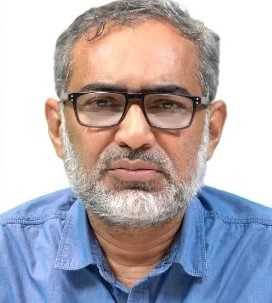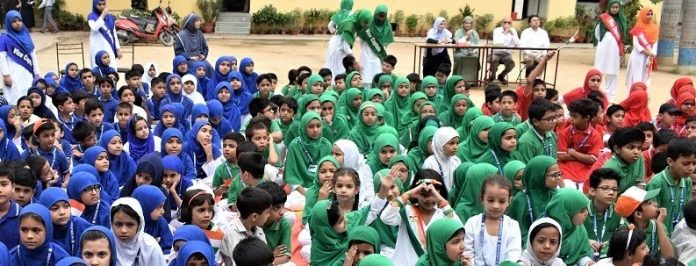New Delhi, March 7: Syed Tanveer Ahmed, Secretary MTB (Markazi Taleemi Board) and FMEI (Federation of Muslim Educational Institutions of India), addressed the critical role of Non-Governmental Organizations (NGOs) in empowering Muslims in the field of education. Deliberating on the existing educational landscape in the country, Mr. Ahmed emphasized the need for a transformative approach that goes beyond the establishment of schools.
 In a statement, Mr. Ahmed said, MTB would like to highlight the following key areas where NGOs can focus their efforts to bring about substantial change:
In a statement, Mr. Ahmed said, MTB would like to highlight the following key areas where NGOs can focus their efforts to bring about substantial change:
(a) Financial Assistance to Poor Students: establishment of district-level NGOs, democratically structured, to collect Zakat and charity funds. This will centralize scholarship programs, ensuring efficient allocation to deserving candidates.
(b) NGOs should play a greater role in increasing the Gross Enrollment Ratio (GER) for Muslims in higher education. Awareness campaigns, guidance, and support are essential to uplift the current 4.49% enrollment rate among Muslim students at the graduation level.
(c) Career Guidance and Counseling: NGOs are urged to address the lack of career awareness among Muslim students. Psychometric tests should be conducted to guide students toward their preferred fields of study.
(d) Following the NEP-2020 recommendations, NGOs are encouraged to form community-based organizations, similar to Teach for India, where volunteers can support schools and students, especially in subjects like Mathematics, Science, and English.
(e) To address the challenging issue of dropouts, NGOs can establish Academic Intensive Care Units (AICUs) focusing on English language and Mathematics.
(f) NGOs are called upon to support government-run schools in Muslim-dominated areas, and (g) establish social enterprises to financially assist poor educational institutions on a participation basis.
(h) NGOs can play an effective role in policy intervention, advice, and response, particularly in uplifting minority communities in the education sector.
(i) NGOs should conduct surveys, studies, and observations to inform government policies for the upliftment of Muslims in education.
(j) NGOs should try to bridge the gap between the government and citizens, acting as watchdogs to ensure the effective implementation of affirmative actions.
The MTB Secretary said, “There are so many things NGOs can do. For example, they can implement a holistic approach to education, aligning with UNO’s proposals for citizenship training and achieving sustainable development goals (SDGs).
NGOs should help in training teachers, making them subject matter experts (SMEs). They can establish coaching centers for deserving students, focusing on competitive examinations.
NGOs should promote art, culture, and traditions related to Muslim minorities. They can evaluate textbooks, represent the community in syllabus design, and work on the education budget at the state level.
NGOs should collaborate with the Waqf Board and department to utilize Waqf properties and funds effectively. State-level NGOs must address the legal and constitutional aspects of education. The MTB seeks collaboration with like-minded NGOs to collectively uplift the Muslim community in India in the field of education.




